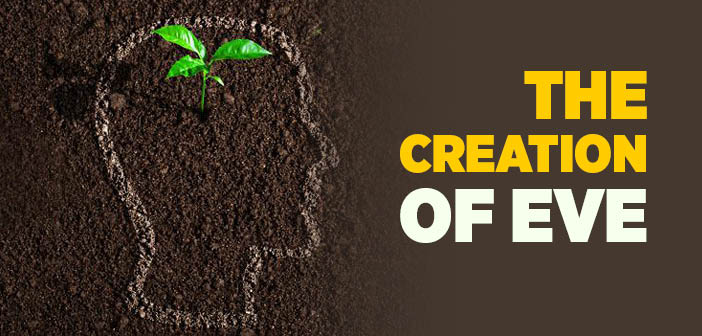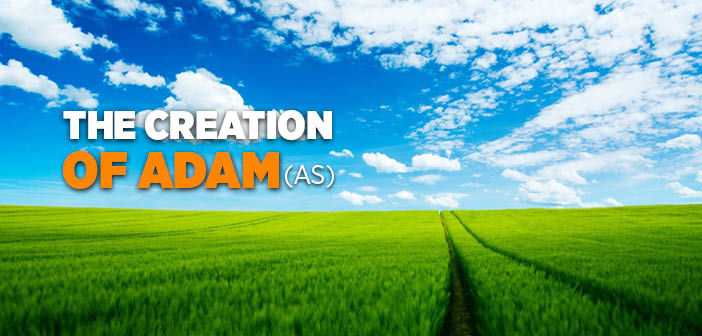What is the unjust? What is the ignorant? Are people are unjust? Are people are ignorant?
On this, the Qur’an says:
“Indeed, we offered the Trust to the skies and the earth and the mountains, and they declined to bear it and feared it; but man did. Indeed, he was unjust and ignorant.” (Al-Ahzab, 33: 72)
The ‘trust’ mentioned in the verse represents the responsibility man has shouldered to fulfill the commands of Allah. Man fulfils what that trust requires of him by using his reason and will. Only man has been given this trust and it is what separates human beings from the rest of creation. It is due to that trust that man faces a trial in this life.
The fact the skies, the earth and the mountains shied away from shouldering that burden goes to show that things we think to be immobile and lifeless are in fact conscious enough to realize the weight responsibility:
“If We had sent down this Qur’an upon a mountain, you would have seen it humbled and coming apart from fear of Allah. And these examples We present to the people that perhaps they will give thought.” (Al-Hashr, 59: 21)
The above verse illustrates that inert beings are capable of reacting both emotionally and physically to divine commands.
Allah tells us that man shouldered the trust because he is by nature unjust and ignorant; and therefore takes on responsibility without weighing the consequences.
The opposite of injustice is justice. Man can be just and avoid becoming unjust by doing lots of good deeds. In chapter al-Asr, Allah says good deeds are necessary for man to keep away from misery and loss.
The opposite of ignorance is knowledge. Knowledge has two parts. It comes with outer sciences as well as inner. Ghazzali suggests that true wisdom requires one to combine both, when he says, “True scholars, who inherit the prophets, are those who are steeped in both sides of knowledge”.
Allah states:
“Is one who is devoutly obedient during periods of the night, prostrating and standing in prayer, fearing the Hereafter and hoping for the mercy of his Lord, like one who does not? Say, ‘Are those who know equal to those who do not know?’ Only they will remember Allah…those who are people of understanding.” (Al-Zumar, 39: 9)
Zamakhshari interprets that verse as follows:
“By ‘those who know’, the Almighty refers to people who obey and occupy themselves with deeds of worship; and by ‘those who do not know’, He means others who abstain. By so doing, He regards believers who are busy with worship as among the knowledgeable, which also implies that people who abstain from obeying and worshipping the Lord can never be scholars in the truest sense. Thus, the verse reproaches people who rely on the little knowledge they have to indulge in the world and avoid obeying and worshipping the Lord.” (Kashshaf, V, 156)
The consequence of all this is that we can steer clear from being unjust and ignorant only to the extent we turn our knowledge, in both the senses mentioned above, into wisdom. In other words, to cure ourselves of these spiritual diseases, we not only need to invest in the mind but also in the heart.
The above verses also warn of the misery that results from turning a blind eye on the wisdom that Allah encourages us to seek.
It is a heavy responsibility, which the Mathnawi interpreter Tahiru’l-Mevlevi expresses as:
To come empty-handed would have been rude
But Lord, sins are all I could bring to You
And what mountains said would make them crack
I’ve dragged twice as much here on my back
Sufis say man’s primal essence is ignorance; and fall back on the Qur’an’s description of man as ‘very ignorant’ as proof. Absolute knowledge belongs to Allah alone. In the Qur’an, it is said:
“Mankind have not been given of knowledge except a little.” (Al-Isra, 85) And this is contrasted with the boundless knowledge of Allah through a tremendous imagery:
“And if all the trees upon the earth were pens and the sea was ink, replenished thereafter by the seven more seas, the words of Allah would not be exhausted. Indeed, Allah is Exalted in Might and Wise.” (Luqman, 31: 27)
The Prophet (as) also says:
“During that incredible journey where Khidr (as) held Moses (as) witness to many wonderful and mysterious incidents, a sparrow landed on the deck of a ship they had boarded and began to collect some water from the sea with its beak. Khidr (as) drew Moses’ (as) attention to it and remarked:
‘What you, I and entire creation know is a drop compared to the sea of Allah’s knowledge.’” (Al-Bukhari, Tafsir, 18/4)
Scholars have drawn on that comparison to say that the knowledge of the people is a drop compared to the sea of what saints know, the knowledge of the saints is a drop compared to the sea of what prophets know, the knowledge of the prophets is drop compared to the sea of what Prophet Muhammed (saw) knows, and the knowledge of the Prophet (saw) is a drop compared to the sea of what Allah (jj) knows.
Nevertheless, if a person manages to acquire taqwa through the little knowledge he has, Allah will grant him wisdom. The person is then given his share of marifah, where he begins to know God as He should be known. It is then that the divine mysteries start to unfold. As the Qur’an says:
“Fear Allah…and He shall teach you.” (Al-Baqarah, 2: 283)
The renowned Qurtubi interprets that verse as:
“Here, Allah (jj) guarantees that He Himself will teach those who fear Him. A person who has taqwa will be given a light in his heart that enables him to grasp the truths and separate right from wrong.” (Qurtubi, III, 406)
This is confirmed by the words of the Prophet (saw):
“Those who practice what they know will be taught by Allah of things they do not know”. (Abu Nuaym, Hilyatu’l-Awliya, X, 15)
Source: The History of Prophets in Light of The Qur’an, THE CHAIN OF PROPHETS, Osman Nuri TOPBAŞ, Erkam Publications





